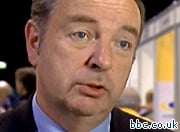Home Office minister Norman Baker has dismissed concerns that the Government’s proposed new anti-social behaviour law could curb free speech and catch ordinary people such as street preachers and carol singers.
In a letter to MPs last week, Baker rejected concerns raised by Reform Clause 1 (RC1) – a new campaign group backed by The Christian Institute and other civil liberty organisations seeking to reform Clause 1 of the Anti-social Behaviour, Crime and Policing Bill.
Baker branded concerns “utter nonsense”, despite the former Director of Public Prosecutions (DPP) Lord Macdonald QC, the Association of Chief Police Officers, civil liberties, religious and secular groups, and parliamentarians across the political spectrum sharing the same concerns.
Response
RC1 issued a response to the minister’s letter criticising the fact it did not engage with the legal opinion issued by the former DPP Lord Macdonald QC, but instead chose to quote a Law Society parliamentary brief in support of the Government’s position.
“The Home Office wants to burden judges with implementing a law of immense vagueness and breadth that allows them to forbid people from any conduct ‘capable of causing nuisance or annoyance to any person'”, the group stated.
“They will, apparently, only apply it when it is ‘just and convenient’ – a test that is even more vague and meaningless than ‘nuisance or annoyance'”, RC1 said in an email issued to MPs this week.
Nuisance
Under Clause 1, a court can grant an Injunction to Prevent Nuisance and Annoyance (IPNA) if someone “has engaged or threatens to engage in conduct capable of causing nuisance or annoyance to any person”.
Lord Macdonald, in his legal opinion, warned that, “a lone individual standing outside the entrance to a bank holding a sign objecting to its role in the financial crisis”, could meet the criteria and threshold for an IPNA. The bank could argue that such a protester was annoying and causing a nuisance to their customers.
The former DPP also pointed out that “a busker outside a shopping centre, or a street preacher proclaiming the end of days to passers-by may all be capable of causing nuisance and annoyance to some person”.
He concluded that the legislation could lead to “gross state interference” with basic freedoms and that the broad scope could lead to many ordinary people facing court action.

